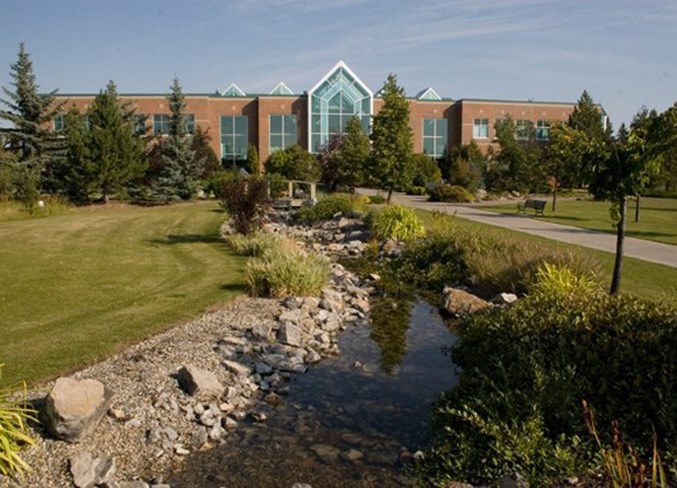The federal government announced today a more than $1.9 million investment in furthering agricultural technological advancement at Olds College.
It is an “investment that will contribute to the growth of our Smart Farm and our work with some of our industry partners,” said Olds College president Stuart Callum in addressing a crowd gathered at the college this morning for the kick-off of AgSmart, a trade show and education conference.
The Regional Innovation Ecosystems (RIE) funding will help the college buy and install agricultural equipment and advanced sensor technologies, as well as recruit agricultural and technical specialists to direct Smart Farm activities and use of data.
The investment, according to the government, is anticipated to create 20 jobs, generate $2.5 million in business research and development (BERD), and assist agriculture companies to achieve $90 million in revenue growth and $27 million in export sales growth.
“The government of Canada recognizes agriculture as a source of well-paying jobs and ground-breaking research. Through these investments in Olds College, agriculture producers across Western Canada will be better equipped to address increasing consumer demands by harnessing new technologies and innovations,” said Navdeep Bains, minister of Innovation, Science and Economic Development in announcing the funding.
Since the summer of 2018, the college has been transforming its existing 2,000 acre farm operation into a farm of the future by incorporating the latest technologies aimed at improving productivity while efficiently and sustainably using resources.
“The agriculture industry plays a critical role in the success of our country. Now more than ever, agriculture is experiencing a data revolution,” said Callum in the announcement.
The Smart Farm creates a place for producers, industry partners, students and faculty to look at the opportunities and challenges facing the agriculture industry and investigate solutions to evolve agriculture practices, according to the college.
Phase 1 focuses on crops, with 110 acres being transformed into a smart farm through installation of stationary soil monitors, digital weather stations, wireless grain bin sensors and a wireless mesh network that will provide Wi-Fi to the entire farm.
Soil and crops will be evaluated using spectroscopy and multispectral imaging along with artificial intelligence neural nets to help determine the differences in healthy and unhealthy plants, and the causes for health deterioration.
Phase 1 development also includes incorporating farm management software platforms that gather, store, and visualize production and management data.
The college is collaborating with partners from the private and public sector, and the government to fund the Smart Farm initiative.
To properly analyze data, plan for future growing seasons, and collaborate with stakeholders, the college created space within the former President’s House and has named it the Olds College Smart Ag Innovation Centre (SAIC).
The facility includes a number of elements that are designed to contribute to the academic excellence of students, bolster applied research, decrease the environmental footprint of the Smart Farm, and be an industry leader in smart agriculture, says the college.



